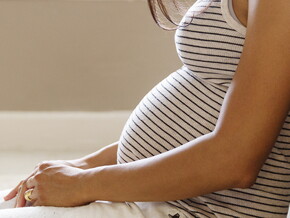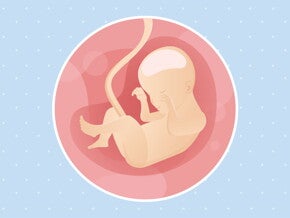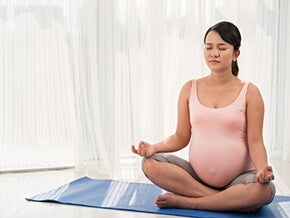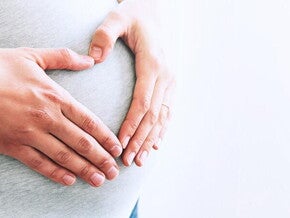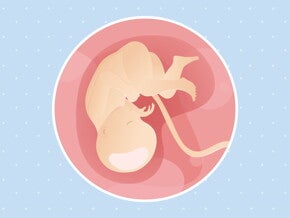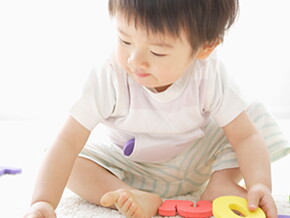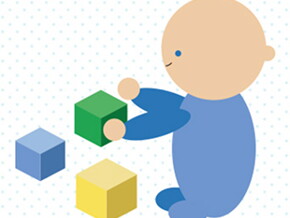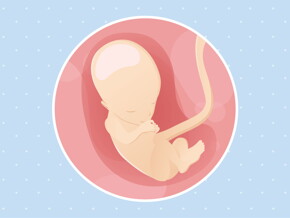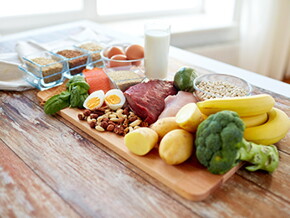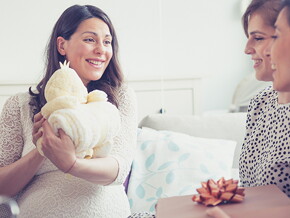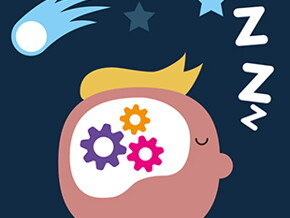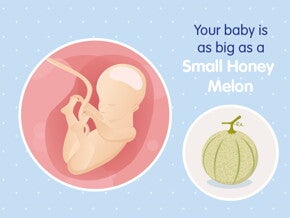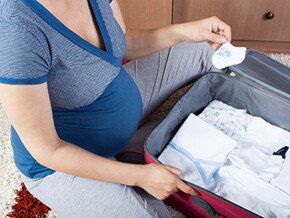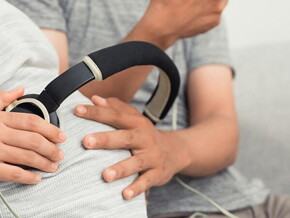
Congratulations on your pregnancy!
Congratulations on your pregnancy! After you get over the initial excitement of the good news, you probably will have some questions. When will I start showing? What are my nutritional needs to ensure healthy development of my baby? Those are probably just the beginning. The good news is that you’re not alone! Not only can doctors and midwives help address your questions and concerns, countless women who have gone through successful, healthy pregnancies can also lend you support. The purpose of this section is to share some knowledge and provide insight on what to expect and how best to care for the life that’s growing inside you. We wish you all the best for a happy, healthy, comfortable pregnancy and breastfeeding journey ahead. Let the countdown begin!
Pregnancy Stages:
5 to 8 weeks – The start of something big
Life starts small, but it doesn’t take long to flourish. At the end of the second month your baby is about 2cm long. His tiny heart has already started to beat. His brain and spinal cord are developing at an incredible rate. Eyes and ears have already started to form and the bud like swellings suggest the growth of arms and legs.
This is the time when you are likely to feel the typical first symptoms of pregnancy which might last until the end of the 3rd month of pregnancy: morning sickness, flatulence, problems with digestion, sensitivity to smells, changes in your sense of taste, slight pains in your lower body, tenderness in your breasts and exhaustion. Of course, everyone is different. Not all women feel these changes, and the intensity varies.
Here are a few tips to feel better:
- Morning sickness - Just after you get up, eat something light or take small sips of fluids.
- Flatulence and constipation - Try to eat more fibre or consume foods with probiotic active cultures proven to help support a healthy digestive system for better bowel movement.
- Feeling tired - Treat yourself to little breaks throughout the day, your body needs them. Managing all the physical and hormonal changes takes energy.
During this very important period of brain and spinal cord formation, it is of paramount importance to supplement your daily diet with a minimum of 400mg of folic acid to reduce the risk of a malformation of the spinal cord known as Neural Tube Defect.
Know more about your 8th week of pregnancy
9 to 12 weeks – Changing bodies
At the end of 3 months your baby weighs approximately 15g and is 4.8-5cm long. You can hear his heart beat and see him for the first time at ultrasound check, which is a very emotional moment! He can now turn his head and move around in your womb with his tiny arms and legs. Vital organs are being developed. Your baby can now feel whether you’re happy or upset, stressed or contented. He can actively experience what is going on in your life. You may feel shaky on your feet quite simply because your body is undergoing so many changes, producing a lot more blood than usual to support the rapid growth of the uterus.
At this stage of pregnancy, you should avoid:
- Strenuous physical activity
- Lifting heavy objects
- Extreme temperatures
- Standing for long periods
- Bending over, crouching and stooping
Know more about your 12th week of pregnancy
13 to 20 weeks – Making contact
Place your hand on your tummy. The tiny being inside you can feel your touch and may actually move towards your hand. Your baby is making contact with you because he can now control his movements. He is swallowing and suckling and sucking his thumbs, and he may actually hear you. At the end of the 5th month your baby weighs around 300g and is about 17cm long. After the 18th week the doctor is able to tell the gender from the scan and let you know if you can look forward to a little girl or a little boy.
At this stage, you will probably notice that your stomach is getting rounder, you can probably feel some ligaments pain but the uncomfortable symptoms of early pregnancy are hopefully behind you. If you find that you are sweating more, this has nothing to do with fitness; rather your body temperature has increased slightly.
Know more about your 20th week of pregnancy
21 to 28 weeks – Getting stronger
At this stage of pregnancy, around six months, your baby is not just moving but may seem to be doing gymnastics in your womb. Some of his kicks are so powerful you can see them. By the end of the 7th month he is about 39cm long and weighs 0.9-1.1kg. Your baby’s distinctive facial features are formed. By the end of the 7th month the foetus can open his eyes and can distinguish light from dark.
The baby is working hard to put on weight. As a result, from around the 22nd week you can expect to gain around 500g each week. Now the arduous part of your pregnancy begins, with your mobility gradually becoming more restricted. The extra weight can be hard on your back and legs. You can experience leg cramps. The uterus presses on most of the organs in your body. Because of all this you should take it easy whenever and wherever possible.
Know more about your 28th week of pregnancy
29 to 32 weeks – A heartbeat away
By the end of the 8th month your baby is already about 40cm long and weighs 1.6-1.8kg. Perhaps he is already in the delivery position, e.g. lying with his head facing downwards. Now your baby’s memory is developing. He recognizes your voice and enjoys hearing it over and over. Do your baby a favour and keep talking! He has also developed a sense of taste. He can tell if the amniotic fluid is slightly sweet, just as he will be able to do with your breast milk. Your baby no longer moves around as much in your tummy because there is not much space now. The foetus also needs more rest now than in previous months.
You can ask your doctor to use his stethoscope so as to hear your baby’s heart beat out loud. A very moving moment!
Know more about your 32nd week of pregnancy
33 to 40 weeks – Almost there!
You’re probably wondering just how much bigger you can get, but don’t fret, the birth is coming soon and a whole lot is still happening. Your baby is getting ready to enter the world. He can open and close his eyes, and he doesn’t have much room to move around so he sleeps a lot. Four to six weeks before the birth, he uses any space left to turn around, head facing downward, into delivery position. Your body is also busy preparing itself, releasing hormones and antibodies that will help keep baby safe and healthy after the birth. Now it’s just a matter of waiting and doing what you can, stay as comfortable and relaxed as possible. Get ready to welcome a new member into your family!
Know more about your 40th week of pregnancy
Nine months to get ready.
Moreover, even if this is a surprise pregnancy, the baby will be of great worth. Also, even if the conception occurred after a long, drawn-out series of tests, medical and surgical practices, such as In Vitro Fertilization (IVF), every baby is a gift of nature. Nine months will not seem long enough to prepare for and receive the baby.
Any woman can get ready to be the mom of this little being, at their own pace and in their own way, but even if she still isn’t taking it very well, the relationship with the baby has already begun and it will change her life. And let’s not forget about the father. Even though dad is not joined physically to the baby the same way you are, he must prepare to become a father. You will soon become parents and your child will depend on and look to you for his needs as he discovers the world outside of the womb.


